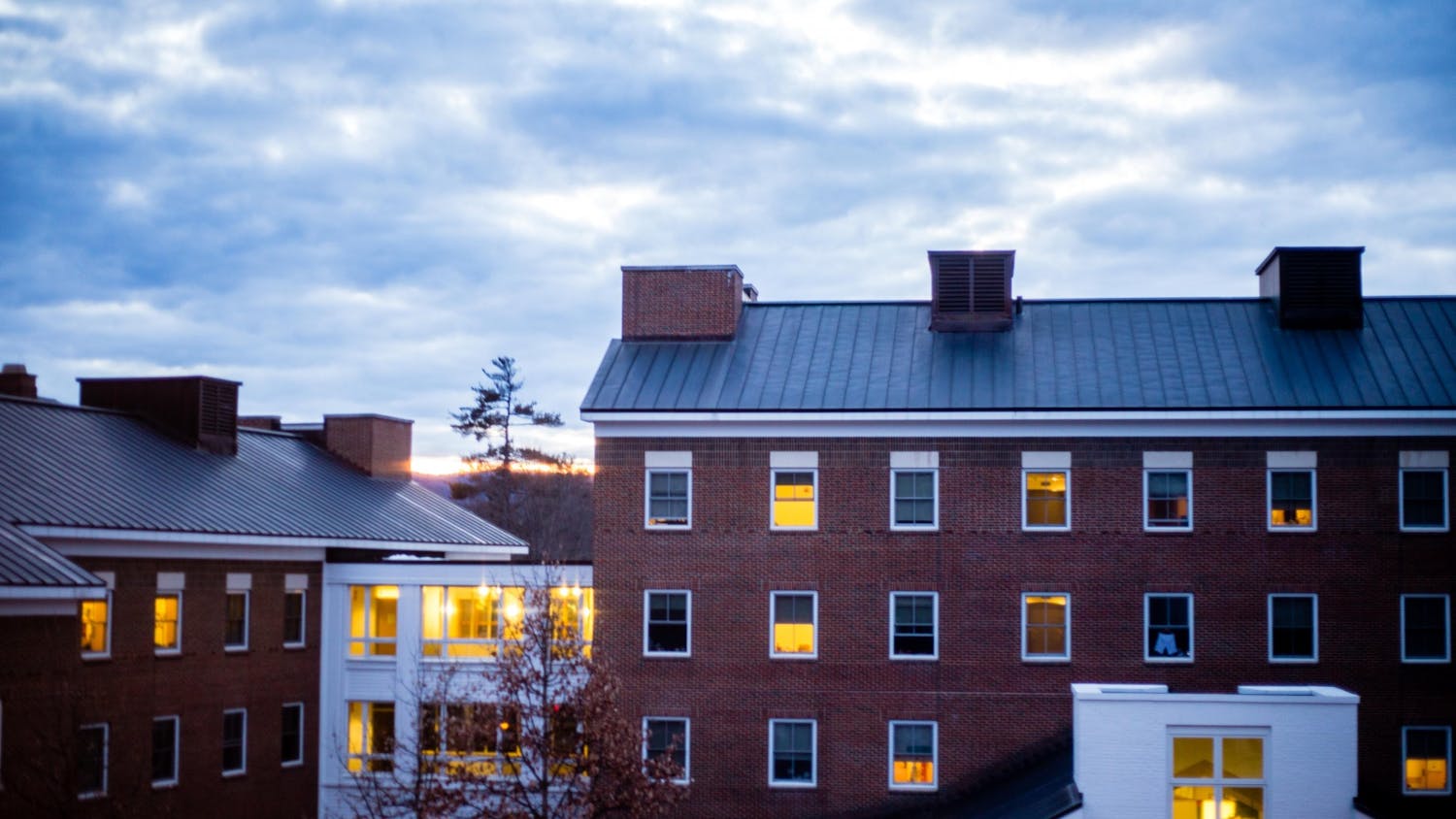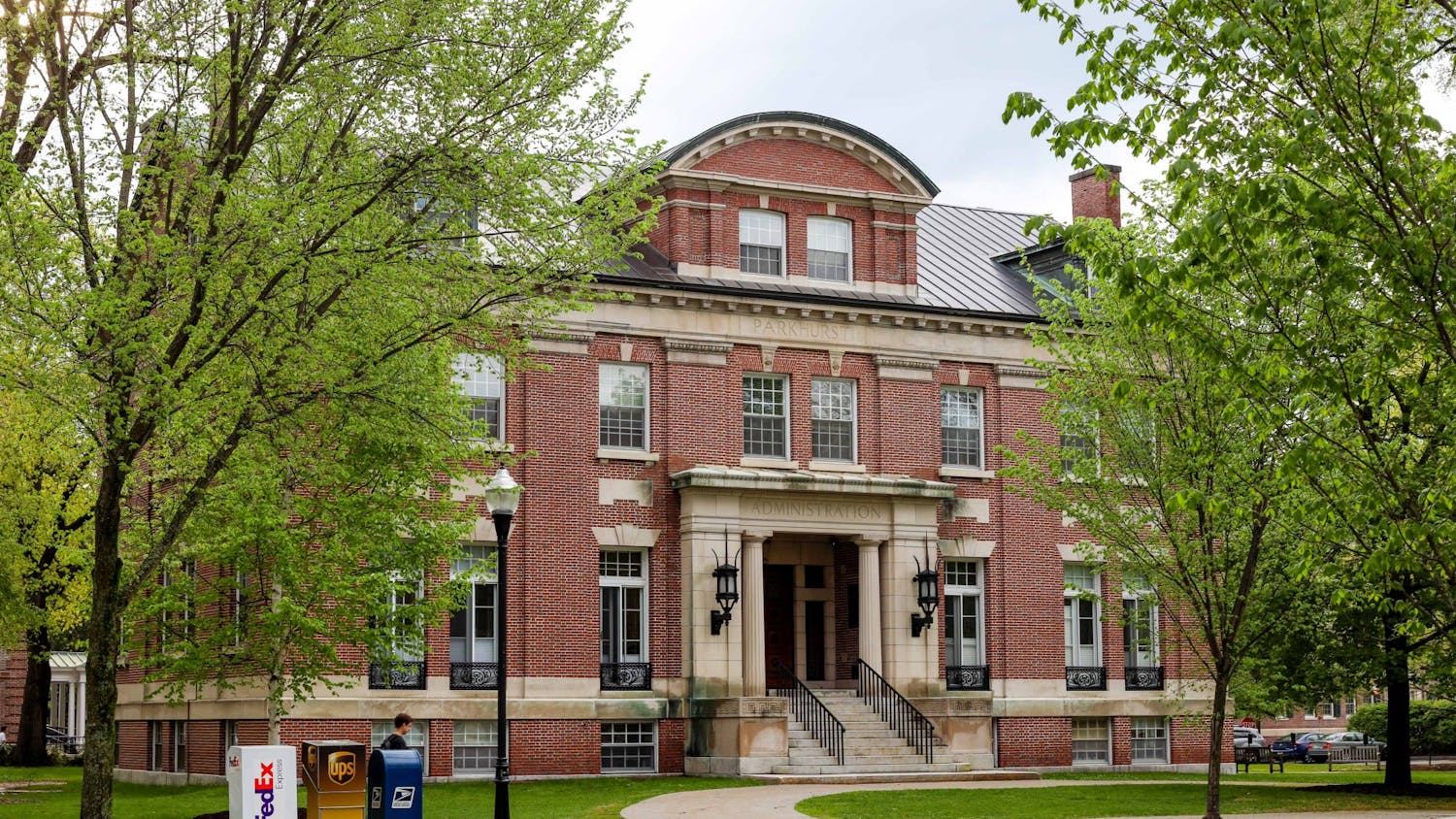Though the College originally stated that only students enrolled in classes for summer term would be allowed to stay in on-campus housing after the spring term ended, some students have been allowed to remain due to extenuating circumstances.
According to associate dean of residential life and director of residential education Mike Wooten, 71 students remain in on-campus residence halls for the summer term. International students who remained on campus during the spring term and faced outstanding circumstances were allowed to stay on campus this summer, regardless of whether they enrolled in classes, according to a June 4 email sent to the Dartmouth community by the International Students’ Association executive board.
Wooten said that all undergraduate students — enrolled and unenrolled — are being housed in the McLaughlin cluster because those dorms have air conditioning. Wooten added that the College will continue to use the Maxwell and Channing Cox apartments and the Lodge for self-quarantine and self-isolation.
Dean of the College Kathryn Lively wrote in an email to The Dartmouth that the care team — a team composed of undergraduate deans and financial aid, OPAL, OVIS, residential life and student life staff — “has been reviewing financial, academic and [visa] issues, in detail, for each student,” and noted that whether or not a student can stay on campus for the summer term “is the result of individual circumstances” — such as not being able to return to one’s home country due to closed borders.
On June 1, while the College maintained that only students enrolled in classes could live on campus, the International Students’ Association circulated a petition asking the College to “to extend concrete, impactful, and rapid assistance” to international students who would have otherwise been evicted from their residence halls on June 10. The petition garnered 9,358 signatures in three days. More than 20 student organizations sent out emails in solidarity with the International Students’ Association.
Many international students, some of whom cannot find flights home or are not allowed across their home country’s borders, are relieved that they can stay a few more months in Hanover.
Meriem Fouad ’21, an international student from Morocco, said that she could not return home for the summer because Morocco’s borders have been closed since March, even to citizens. Fouad had initially been approved for funding from the Dickey Center for International Understanding to do an internship over the summer. However, the week of May 25, Fouad received word from the Dickey Center of a policy which stipulates that in order to receive funding, students need to either be at home or on campus. She said this policy created “a weird ‘catch-22’” — she could not be on campus because of Dartmouth’s policy, and she could not be at home because of Morocco’s closed border.
The Dickey Center has since amended its policy, allowing Fouad to complete her internship from her off-campus residence.
Bryan Manzi ’21, an international student from Rwanda, said he could not enroll in summer classes either. He already had a remote internship lined up and did not want to void his contract. He added that enrolling in summer classes would have made it difficult for him to complete his major given the limited summer term course offerings.
Although Rwanda’s borders remain open to students, there are no direct flights from the United States to Rwanda, and so Manzi said he would have to travel through multiple airports and increase his risk of exposure to COVID-19 in order to return home. Manzi said he received approval to stay on campus before the International Students’ Association sent its letter to campus, due to his extenuating circumstances.
Manzi is completing his summer internship from campus and said that he is grateful that the College has decided to accommodate his circumstances and allow him to stay over the summer. He added, however, that the wait leading up to the College’s decision was frustrating.
Lively said that on-campus conditions this summer will remain largely the same as during spring term. According to Lively, dining services will continue to function on a limited basis, and all community members, including students, will be required to follow face covering, social distancing, group gathering and other public guidelines. Students who are placed in self-isolation or self-quarantine will continue to relocate to those facilities until cleared by the College health service.
International Students’ Association vice president Marco Cabrera Aguilar ’21 said that enrolling in summer term classes and altering one’s D-Plan may not present problems for students who hold U.S. passports, but for many international students, visa guidelines can make moving around on terms complicated due to visa guidelines.
Cabrera Aguilar said that the International Students’ Association is pleased that the College decided to provide housing and financial support to students but said there are still “huge issues” of “tardiness” and “inaccuracy” in the care team’s communications with affected students, which make it difficult for international students to make travel and housing plans.
“Students remained in the dark regarding their housing situation halfway through week 10, barely a week away from the day they were due to vacate their rooms and with no time at all to secure alternative housing if the need arose,” Cabrera said. He added that the International Students’ Association hopes that in the future the College will take into account international students’ heightened vulnerability and act in a more timely fashion.




